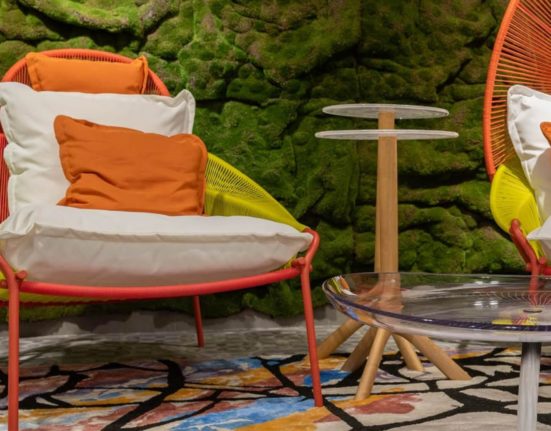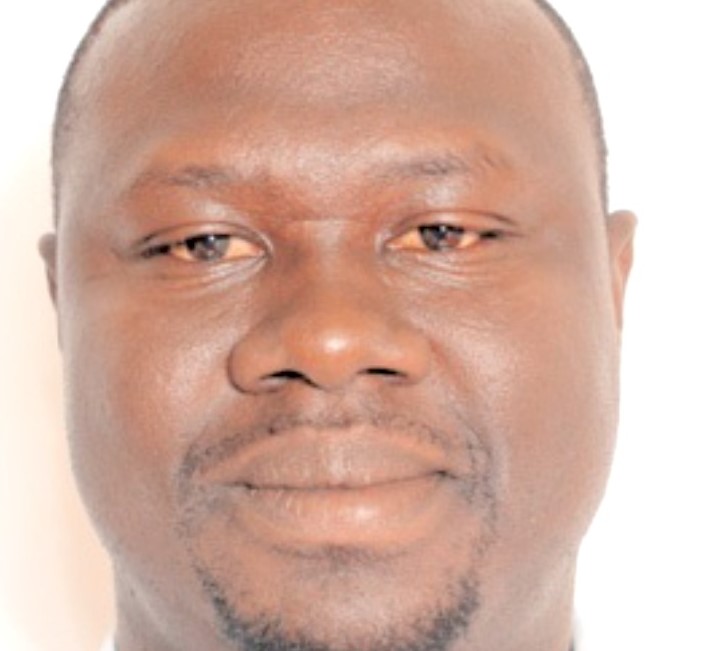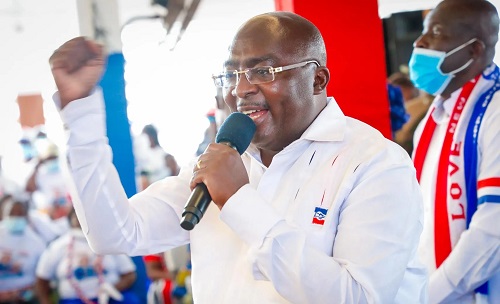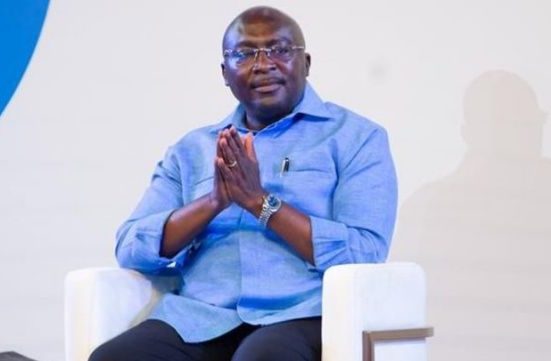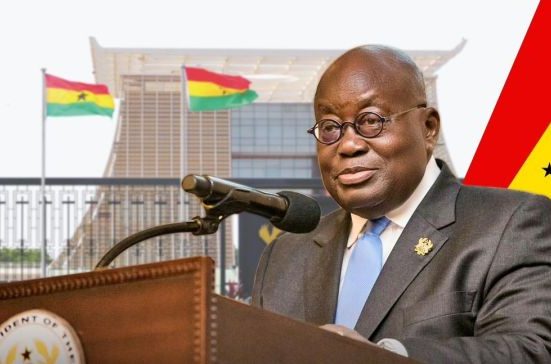In the vibrant world of Asomdwekromanian politics, a unique and inspiring figure emerges Dr. Mahamudu Bawumia, known as the bridge builder and unifier.
He is a man who shares ‘sobolo’ with Christians and breaks fast with Muslims. The calabash, a simple yet versatile gourd, holds a special significance in Asomdwekromanian culture.
Its rounded shape, often crafted into bowls, cups, or containers, represents sustenance and community. Picture an open-air market in Nkrankrom, where vendors proudly display their goods on woven mats. Among the colorful fruits and spices, you will find calabashes filled with sobolo or ‘asaana’. Just like Dr. Bawumia’s leadership, the calabash serves as a link between generations, seamlessly connecting the past with the present through nourishment and heritage.
Visualize Dr. Bawumia, adorned in his kente cloth, holding a calabash – a vessel that transcends time. Raised in a Muslim household, where the call to prayer resonated in sunlit courtyards, he learned the essence of faith. But there’s more to his calabash than just sobolo; it symbolizes unity.
With each sip, he envisions the essence of collaboration, understanding, and progress. The calabash nods in approval – recognizing a true leader. Ah, sobolo, the refreshing pink tonic that delights the taste buds and soothes the soul. Made from dried roselle petals, this hibiscus drink is a beloved Asomdwekromanian beverage.
Envision a lively street corner, where a vendor serves sobolo in calabash cups. The tangy-sweet flavors blend with ginger, cloves, and a hint of citrus. As the sun sets over Nkrankrom, friends come together, clinking their calabash vessels in a toast to life’s simple joys.
Sobolo embodies the inclusive nature of Dr. Bawumia, extending an invitation to all to partake in its communal embrace. Dr. Bawumia, always the diplomat, raises his calabash with pride. “Let us strive for unity!” he proclaims, and the crowd responds in unison, “To unity!” The hibiscus petals twirl, whispering stories of bygone eras.
“We are all united in this concoction,” they murmur. Dr. Bawumia smiles. “Just like politics,” he remarks. “A touch of ginger, a sprinkle of cloves, and a generous amount of empathy.” The calabash nods knowingly, having witnessed leaders come and go, but recognizing that this one is truly exceptional.
Now, let us delve into waakye – a symphony of rice and beans, harmonized by the warmth of the sun and the skill of the chef. Imagine a bustling food stall in Oseikrom, where the tantalizing aroma of waakye wafts through the air. The rice, tinged a deep brown by sorghum leaves, nestles alongside tender cowpeas. A spoonful of shito (spicy black pepper sauce) adds a fiery crescendo. And what vessel holds this culinary masterpiece? None other than the reliable calabash, its curves embody tradition and flavor.
Dr. Bawumia’s leadership, akin to waakye, blends diverse elements into a harmonious whole, celebrating unity and resilience. With his sleeves rolled up, Dr. Bawumia stirs the pot. The rice, much like his policies, absorbs the essence of its surroundings. The cowpeas? They represent the opposition, at times challenging but necessary for equilibrium. And the shito?
Well, that is the unadorned truth, the unvarnished reality. As he serves waakye in calabash bowls, he whispers, “Unity is a grand feast.” The calabash chuckles, having witnessed leaders add spice to their endeavors in the past, but recognizing the mastery of this chef. Dr. Bawumia, the servant who bridges the gap between Muslim and Christian, dances between faiths like a skilled drummer.
His calabash brims with wisdom, sobolo, and waakye. As the sun sets over Asomdwekrom, casting shadows upon the savannah, he raises it high. “To harmony,” he toasts.


